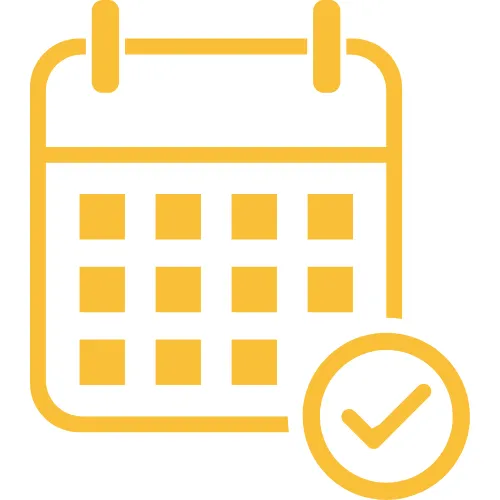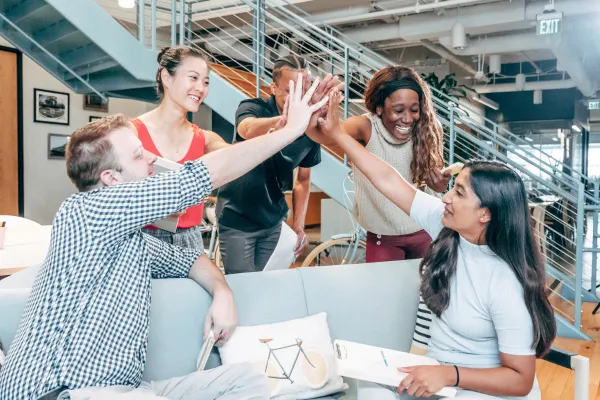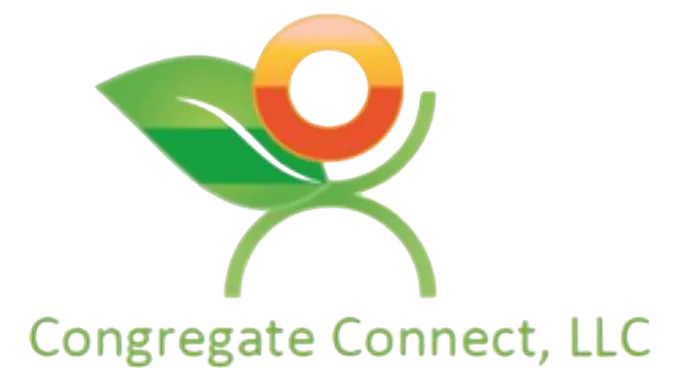Welcome to Congregate Connect LLC
Providing Support with
Care and Compassion
At Congregate Connect LLC, our goal is to enhance the quality of life for individuals with developmental disabilities. Our dedicated professional team is committed to offering opportunities to develop their skills. In our residential facility, clients will connect with others facing similar conditions. We ensure continuous guidance and support throughout their stay with us.
Welcome to Congregate Connect LLC
Providing Support with Care and Compassion
At Congregate Connect LLC, our goal is to enhance the quality of life for individuals with developmental disabilities. Our dedicated professional team is committed to offering opportunities to develop their skills. In our residential facility, clients will connect with others facing similar conditions. We ensure continuous guidance and support throughout their stay with us.
Our Mission
"We'll be there when you need us"
To provide value-driven services to persons with developmental disabilities. With dedication and commitment, we will provide compassionate care that supports each individual that we are privileged to serve.
Application of our training components will help develop the mind, body and spirit of each individual which will encourage positive choices, promote in- dependence, and provide opportunities for personal growth
Our Mission
"We'll be there when you need us"
To provide value-driven services to persons with developmental disabilities. With dedication and commitment, we will provide compassionate care that supports each individual that we are privileged to serve.
Application of our training components will help develop the mind, body and spirit of each individual which will encourage positive choices, promote in- dependence, and provide opportunities for personal growth
For inquiries about our services, scheduling appointments, and more, please contact
Congregate Connect LLC : (562) 955-3388
For inquiries about our services, scheduling appointments, and more, please contact
Congregate Connect LLC :
(562) 955-3388
Who We Are
We are a multi-faceted company that is vendored to provide a wide range of services and programs. All of which are strategically designed to improve and enhance the lives of those we serve
Who We Are
We are a multi-faceted company that is vendored to provide a wide range of services and programs. All of which are strategically designed to improve and enhance the lives of those we serve

We're thrilled to assist you.
Steps to Enroll
Rely on us to provide exceptional care and support for your loved ones.

Visit Us Today
Schedule A Tour
Allow us to show you around our facility.

We'd love to hear your feedback
Answer Our Survey
Share your thoughts on our services with us.

We're thrilled to assist you.
Steps to Enroll
Rely on us to provide exceptional care and support for your loved ones.

Visit Us Today
Schedule A Tour
Allow us to show you around our facility.

We'd love to hear your feedback
Answer Our Survey
Share your thoughts on our services with us.
Services
We Support
Parenting Support
Service Code: 108
Vendor Number: PX0759
• Parental Stress Management
• Maintaining a Household
• Navigating the School System
• Healthy Play & Developing Bonds
Independent Living Skills
Service Code: 520
Vendor Number: HX0755
• Sell-Help/Care Skills
• Social Relationship Skills
• Avoiding Personal/ Financial Crisis
• Forensic Services
Support Living Skills
Service Code: 896
Vendor Number: HX0767
• Community Awareness
• Healthy Cooking Skills
• Self-Advocacy Skills
• Specialized Services
Consumers Learn
We Care
Registered Nurse Services
Service Code: 744
Vendor Number: PX0760
• Clinical/Medical Support
Requiring an RN License
Licensed Vocational Nurse Services
Service Code: 742
Vendor Number: PX0773
• Clinical/Medical Support Requiring an LVN License
• Glucose Monitoring
• Blood Pressure Monitoring
American Sign Language Interpreter
Service Code: 642
Vendor Number: PX0775
• American Sign Language Support & Training
• Pictures Exchange Communication System
Consumers Improve
We Teach
Housing Services
Service Code: 101
Vendor Number: PX0731
• Property Rental
• Referral Assistance
• Moving Cost Assistance
Personal Assistance
Service Code: 063
Vendor Number: PX0758
• Intense Specialized Support
• Forensic/Judicial Support
• Paramedical Support
Adult Residential Facility
• CPP Consumers Okay
• Consumers Transitioning from IMD or
DD/MI Unit Okay
• Structured Living Environments
• Consumers with complex case
management issues
Consumers Succeed
Services
We Support
Parenting Support
Service Code: 108
Vendor Number: PX0759
• Parental Stress Management
• Maintaining a Household
• Navigating the School System
• Healthy Play & Developing Bonds
Independent Living Skills
Service Code: 520
Vendor Number: HX0755
• Sell-Help/Care Skills
• Social Relationship Skills
• Avoiding Personal/ Financial Crisis
• Forensic Services
Support Living Skills
Service Code: 896
Vendor Number: HX0767
• Community Awareness
• Healthy Cooking Skills
• Self-Advocacy Skills
• Specialized Services
Consumers Learn
We Care
Registered Nurse Services
Service Code: 744
Vendor Number: PX0760
• Clinical/Medical Support
Requiring an RN License
Licensed Vocational Nurse Services
Service Code: 742
Vendor Number: PX0773
• Clinical/Medical Support Requiring an LVN License
• Glucose Monitoring
• Blood Pressure Monitoring
American Sign Language Interpreter
Service Code: 642
Vendor Number: PX0775
• American Sign Language Support & Training
• Pictures Exchange Communication System
Consumers Improve
We Teach
Housing Services
Service Code: 101
Vendor Number: PX0731
• Property Rental
• Referral Assistance
• Moving Cost Assistance
Personal Assistance
Service Code: 063
Vendor Number: PX0758
• Intense Specialized Support
• Forensic/Judicial Support
• Paramedical Support
Adult Residential Facility
• CPP Consumers Okay
• Consumers Transitioning from IMD or
DD/MI Unit Okay
• Structured Living Environments
• Consumers with complex case
management issues
Consumers Succeed
Frequently Asked Questions
Do I need to live in a particular area to access services from the Counseling Center?
Congregate Connect LLC's physical office is situated in Paramount, CA. Clients also have the option to participate in therapy remotely through our virtual telehealth platform and private pay.
What are the next steps to access support?
To start the enrollment process, you can call, text, email, or visit our “contact” page. Our staff will then get in touch to gather information about your insurance, needs, and to match you with the appropriate therapist. If you have any questions, don’t hesitate to reach out!
What are the hours of operation for the Counseling Center?
Congregate Connect LLC’s Counseling Center is open Friday through Sunday from 8:00 a.m. to 6:30 p.m. Services are available by appointment only; walk-ins are not accepted.
What resources are available for individuals facing mental health challenges?
It’s okay not to be okay. Here are some helpful resources for mental health support:
988: National Suicide Prevention Hotline (click the blue button in the top right corner of this website to access the page)
855.845.7415: Peer-Run Warm Hotline (non-emergency support for mental and emotional needs in California)
Text 741.741: Connect with a trained crisis counselor for free, 24/7 crisis support via text (available in English and Spanish)
805.964.524: Domestic Violence Solutions (24-hour crisis and information hotline)
888.868.1649: ACCESS Line (24-hour crisis response and services in Santa Barbara)
805.564.3696: Standing Together to End Sexual Assault (24-hour hotline)
888.334.2777: SAFTY (Safe Alternative for Treating Youth)
800.971.0016: Institute on Aging, Friendship Line
866.488.7386 or text "START" to 678-678: The Trevor Project (suicide prevention support for LGBTQ+ individuals)
1.800.273.8255 or text 838255: Veterans Crisis Line
1.800.662.HELP (4357) (TTY 800-846-8517) or text your 5-digit ZIP code to 435748 (HELP4U): SAMHSA’s National Helpline for treatment referrals and information (available in English and Spanish)
Frequently Asked Questions
Do I need to live in a particular area to access services from the Counseling Center?
Congregate Connect LLC's physical office is situated in Paramount, CA. Clients also have the option to participate in therapy remotely through our virtual telehealth platform and private pay.
What are the next steps to access support?
To start the enrollment process, you can call, text, email, or visit our “contact” page. Our staff will then get in touch to gather information about your insurance, needs, and to match you with the appropriate therapist. If you have any questions, don’t hesitate to reach out!
What are the hours of operation for the Counseling Center?
Congregate Connect LLC’s Counseling Center is open Friday through Sunday from 8:00 a.m. to 6:30 p.m. Services are available by appointment only; walk-ins are not accepted.
What resources are available for individuals facing mental health challenges?
It’s okay not to be okay. Here are some helpful resources for mental health support:
988: National Suicide Prevention Hotline (click the blue button in the top right corner of this website to access the page)
855.845.7415: Peer-Run Warm Hotline (non-emergency support for mental and emotional needs in California)
Text 741.741: Connect with a trained crisis counselor for free, 24/7 crisis support via text (available in English and Spanish)
805.964.524: Domestic Violence Solutions (24-hour crisis and information hotline)
888.868.1649: ACCESS Line (24-hour crisis response and services in Santa Barbara)
805.564.3696: Standing Together to End Sexual Assault (24-hour hotline)
888.334.2777: SAFTY (Safe Alternative for Treating Youth)
800.971.0016: Institute on Aging, Friendship Line
866.488.7386 or text "START" to 678-678: The Trevor Project (suicide prevention support for LGBTQ+ individuals)
1.800.273.8255 or text 838255: Veterans Crisis Line
1.800.662.HELP (4357) (TTY 800-846-8517) or text your 5-digit ZIP code to 435748 (HELP4U): SAMHSA’s National Helpline for treatment referrals and information (available in English and Spanish)
Blogs

The Importance of Peer Support in Disability Communities
"Peer support in disability communities empowers individuals to face challenges together, creating strength in connection and shared experience."
In every community, the importance of support systems cannot be overstated, but in disability communities, peer support plays a particularly vital role. Disability, whether physical, intellectual, sensory, or mental, can create unique challenges for individuals that may feel isolating. For many, navigating life with a disability may sometimes feel like an uphill battle. However, peer support provides a lifeline to those facing similar circumstances. It fosters understanding, builds confidence, and empowers individuals to live more fulfilling lives.
What is Peer Support?
Peer support refers to individuals who share similar experiences coming together to provide mutual support. It’s a relationship where people with shared life experiences offer emotional, social, and practical assistance to each other. In disability communities, peer support can range from simply sharing coping strategies to providing guidance on navigating social or professional environments.
Unlike traditional professional support, which often focuses on diagnosis and treatment, peer support centers on shared experience and empathy. Those offering support often understand firsthand the difficulties faced by others, and this mutual understanding creates an environment of trust and comfort. For individuals with disabilities, this can be a transformative experience, making them feel less alone and more capable of facing challenges.

Why is Peer Support Vital in Disability Communities?
Building Emotional Resilience
One of the most significant benefits of peer support is the emotional strength it fosters. For individuals living with disabilities, feelings of isolation or frustration can be common. Connecting with someone who truly understands can alleviate these emotions. Peer support offers a safe space to vent, share experiences, and receive encouragement from someone who has walked a similar path. This bond can significantly reduce stress, anxiety, and depression, which are often associated with disability.
Practical Advice and Empowerment
People with disabilities face unique challenges, ranging from dealing with medical systems, accessibility issues, navigating public spaces, or advocating for their rights. Peer support groups provide a platform for sharing valuable advice and tips. A person who has been living with a disability for a long time can provide insights on managing daily tasks, communicating with healthcare providers, or finding local resources and services. This kind of information exchange is immensely helpful, empowering individuals to take more control over their lives.
Advocacy and Social Change
Peer support often sparks collective action within disability communities. When individuals come together to share experiences, they not only build personal connections but also raise awareness about shared challenges. Peer groups can become a driving force for advocacy, pushing for better access, accommodations, and rights for people with disabilities. In fact, some of the most significant advances in disability rights have been driven by the collective power of peer support, from the accessibility of public buildings to the development of disability-inclusive policies.
Strengthening Self-Advocacy
Peer support encourages individuals to become their own advocates. Learning from others about how to stand up for oneself, demand proper accommodations, and challenge discrimination builds a sense of empowerment. People who engage in peer support groups are often better equipped to articulate their needs and navigate societal barriers. This leads to a higher quality of life and greater integration into mainstream society, whether in education, employment, or social activities.
Combatting Isolation and Building Community
Disability can often lead to social isolation, whether due to physical barriers, societal attitudes, or a lack of understanding. Peer support groups create inclusive communities where people can connect, form friendships, and engage in social activities. These communities break down barriers of loneliness and offer a sense of belonging. Through peer support, people with disabilities can come together, not only to share struggles but to celebrate victories, big or small.
Improving Mental Health and Well-Being
The mental health benefits of peer support in disability communities are profound. People with disabilities often deal with mental health struggles, such as depression and anxiety, partly due to the stress of living in a world that is not always designed for them. Peer support creates a safe environment for individuals to talk about their mental health without fear of judgment. It’s a space where they can share coping mechanisms, seek advice, and provide comfort to others. Ultimately, these relationships help improve overall mental well-being and provide a sense of hope and belonging.
How Peer Support Works in Disability Communities
Peer support can take many forms, from informal interactions between friends and family to more structured, organized support groups. With the advent of technology, online communities and virtual support groups have become increasingly popular, providing people from all over the world the chance to connect with others who share their experiences.
Examples of peer support include:
Peer-Led Support Groups: Organized gatherings where individuals with disabilities can meet, share experiences, and support one another.
Online Forums and Social Media Groups: Digital platforms where people can ask questions, seek advice, or just share their stories with others in similar situations.
Mentorship Programs: Programs where someone with more experience in dealing with a disability mentors someone who is newer to the experience.
Disability Advocacy Organizations: Many advocacy groups include peer support as part of their mission, offering both resources and community-building opportunities.
The Future of Peer Support in Disability Communities
The role of peer support in disability communities is more important than ever as awareness of disability issues continues to grow. Technological advances offer new opportunities for people to connect, whether through virtual meetings, social media, or even apps designed specifically for disability-related support.
As society becomes more inclusive and disability-friendly, peer support will continue to play a pivotal role in empowering individuals with disabilities. More awareness, resources, and funding will be needed to ensure that peer support is accessible to all, regardless of geography or financial limitations.
Conclusion
Peer support is a cornerstone of strength, resilience, and empowerment in disability communities. By offering emotional and practical support, combating isolation, and fostering a sense of community, peer support enables individuals with disabilities to live fuller, more independent lives. Whether through face-to-face groups, online platforms, or informal networks, the value of connecting with others who share similar experiences cannot be overstated. The future of disability advocacy and community-building rests heavily on the continued growth and success of peer support systems, ensuring that people with disabilities can continue to thrive, not just survive.

Facebook
Instagram
Youtube
TikTok